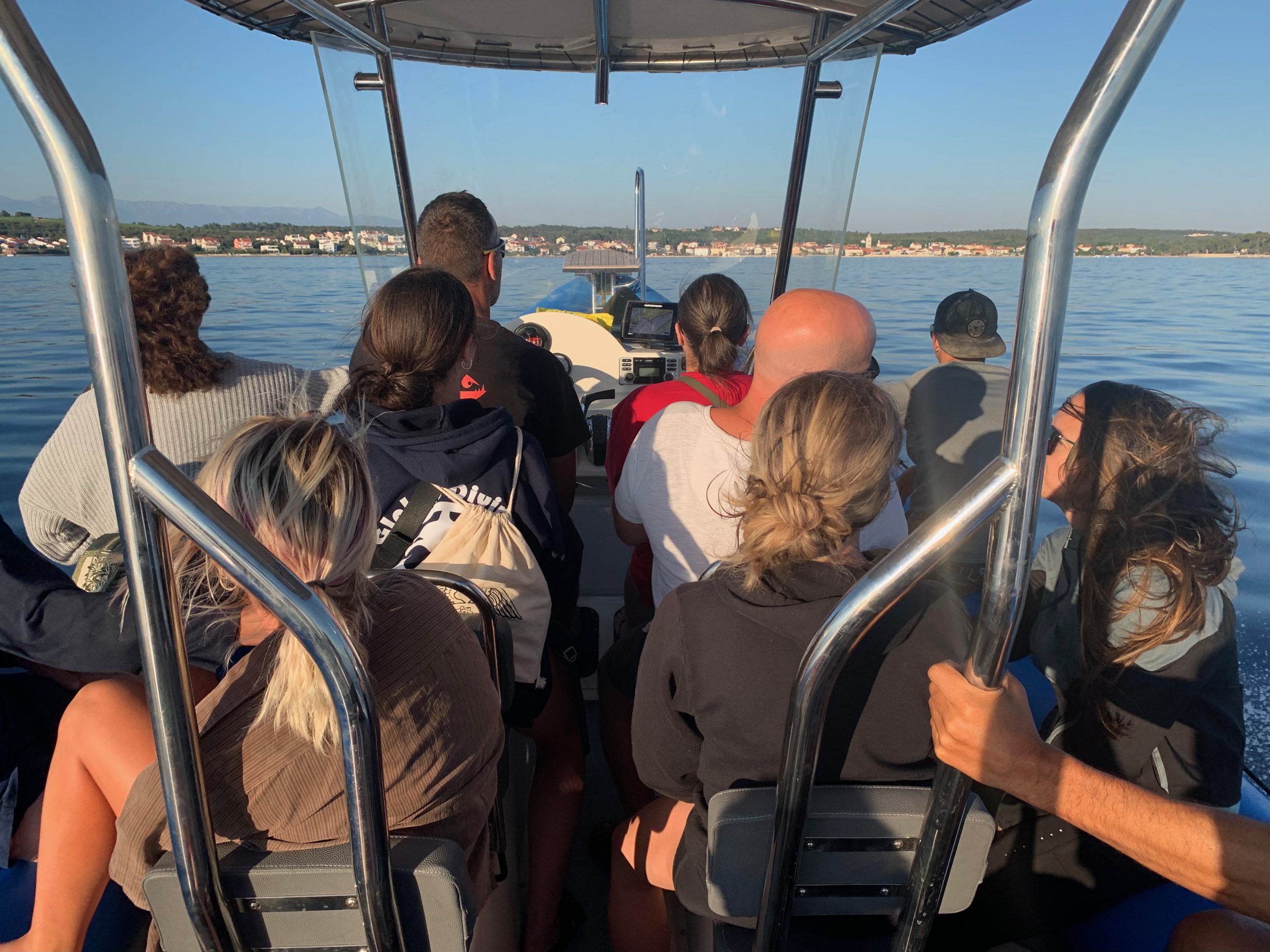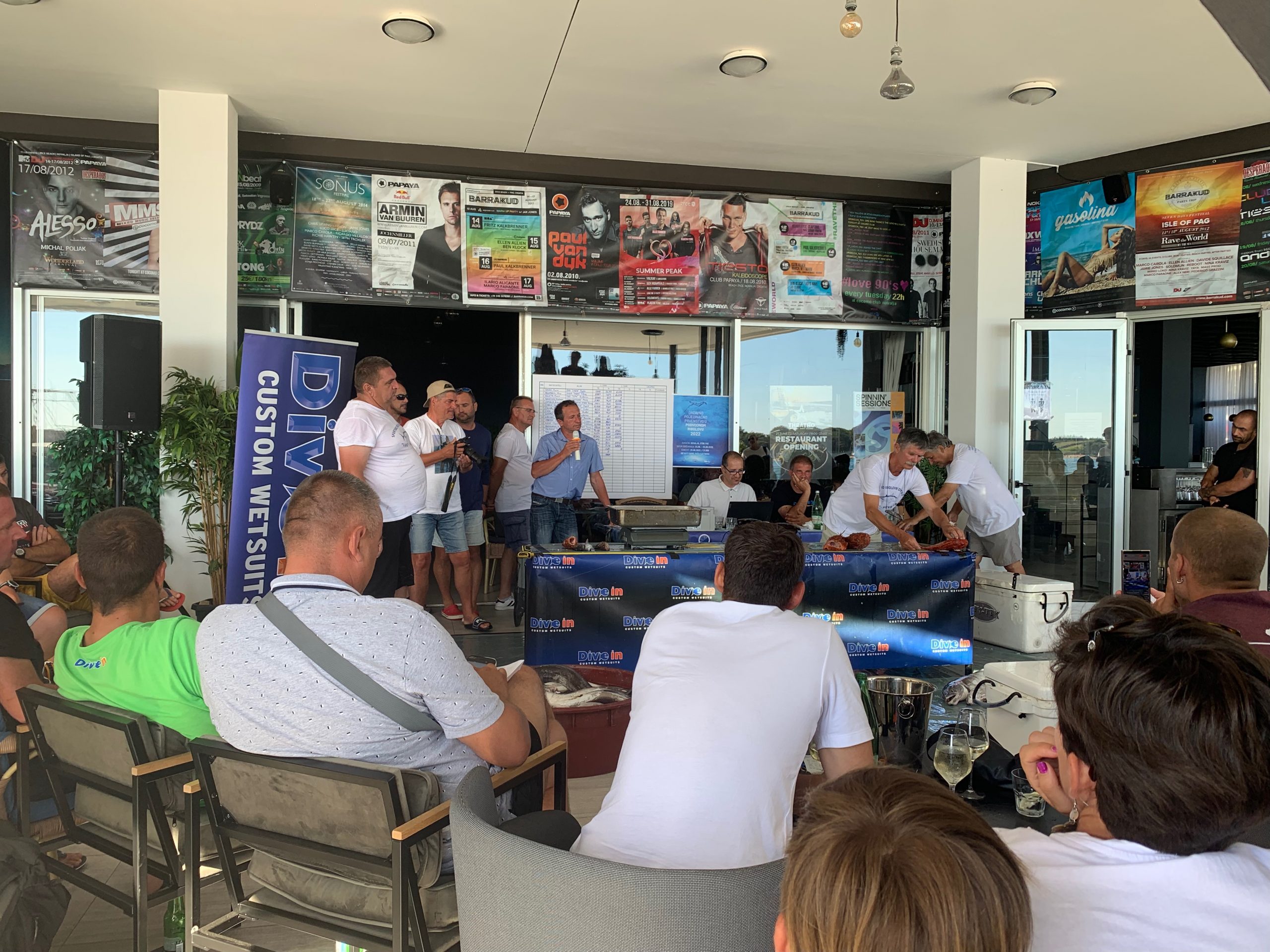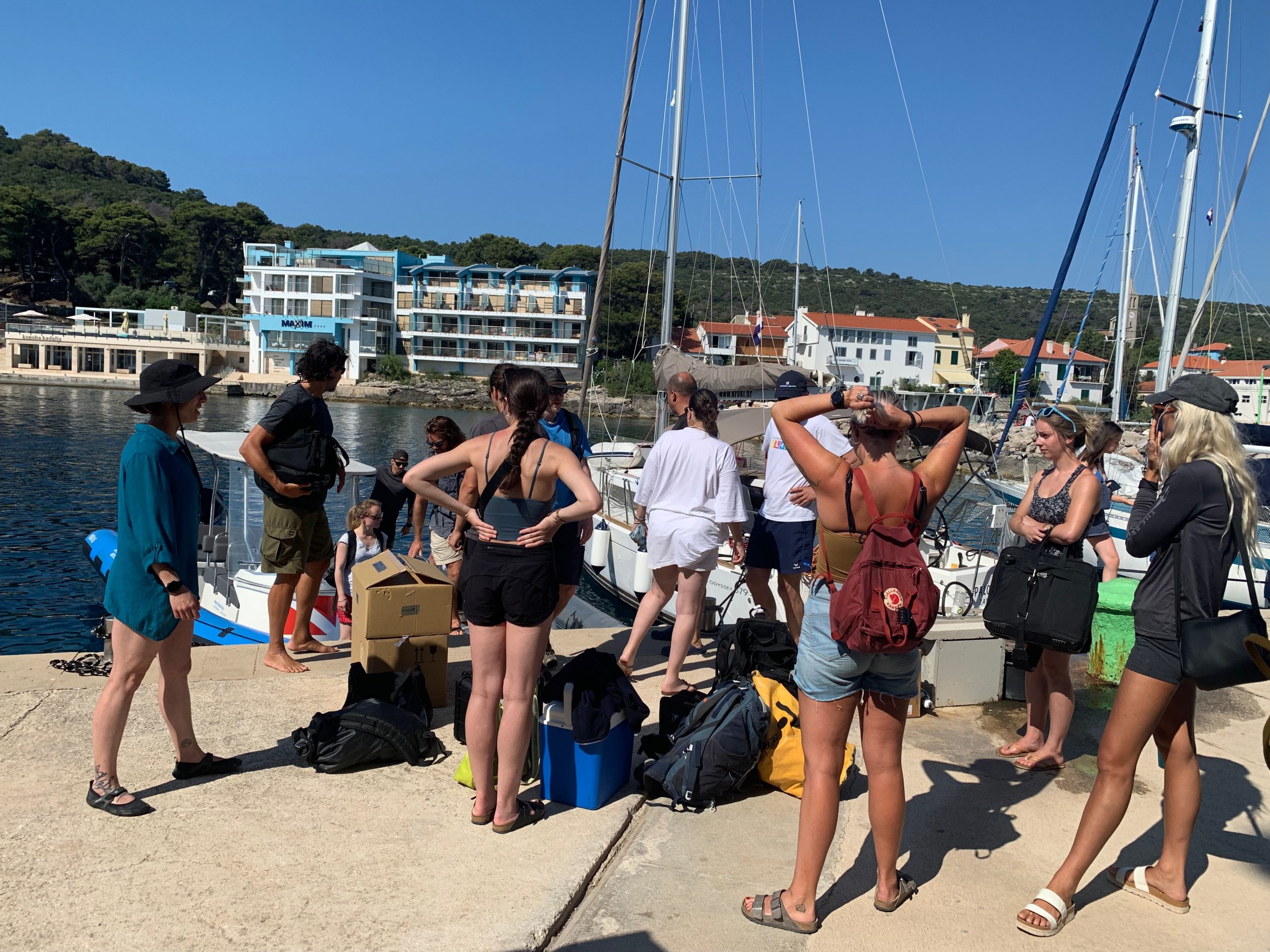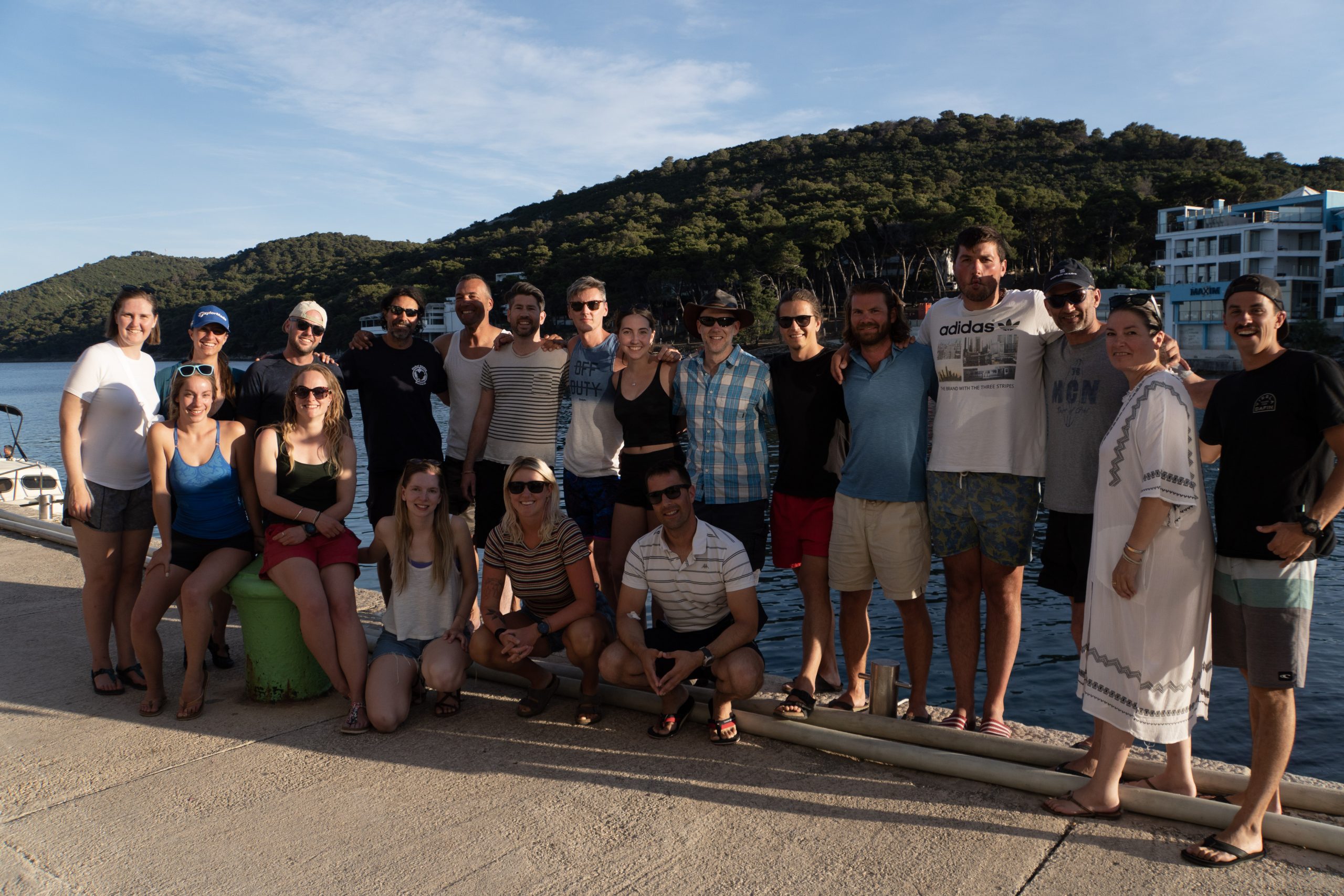PhD candidate Rhea Storlund decided to take an unconventional approach to understand how marine mammals dive by asking human breath-hold divers about the decisions they make.
Storlund travelled to Croatia with a global team of researchers this summer to investigate the physiology and behaviour of local spearfishers. Spearfishers are similar in many ways to marine mammals, but have the added advantage of being able to answer questions about how they feel during different parts of their dives, and the factors that go into their decision making process — information that researchers have wondered about for marine mammals.
Why study spearfishers?
Spearfishers breath-hold dive to search for and capture fish using spear-guns. Sometimes they lay on the bottom of the ocean and wait for fish to appear. Other times they actively search, often in caves, to find fish.
Similarities between the dive behaviour of spearfishers and marine mammals make them an ideal group of people to ask about diving. Both groups perform breath-hold dives to search for and catch fish at depth. Like marine mammals, spearfishers make short, repeated dives, and take breaks at the surface to catch their breath and recover before diving again. These similarities coupled with the spearfishers ability to communicate directly with researchers made them perfect for this research.
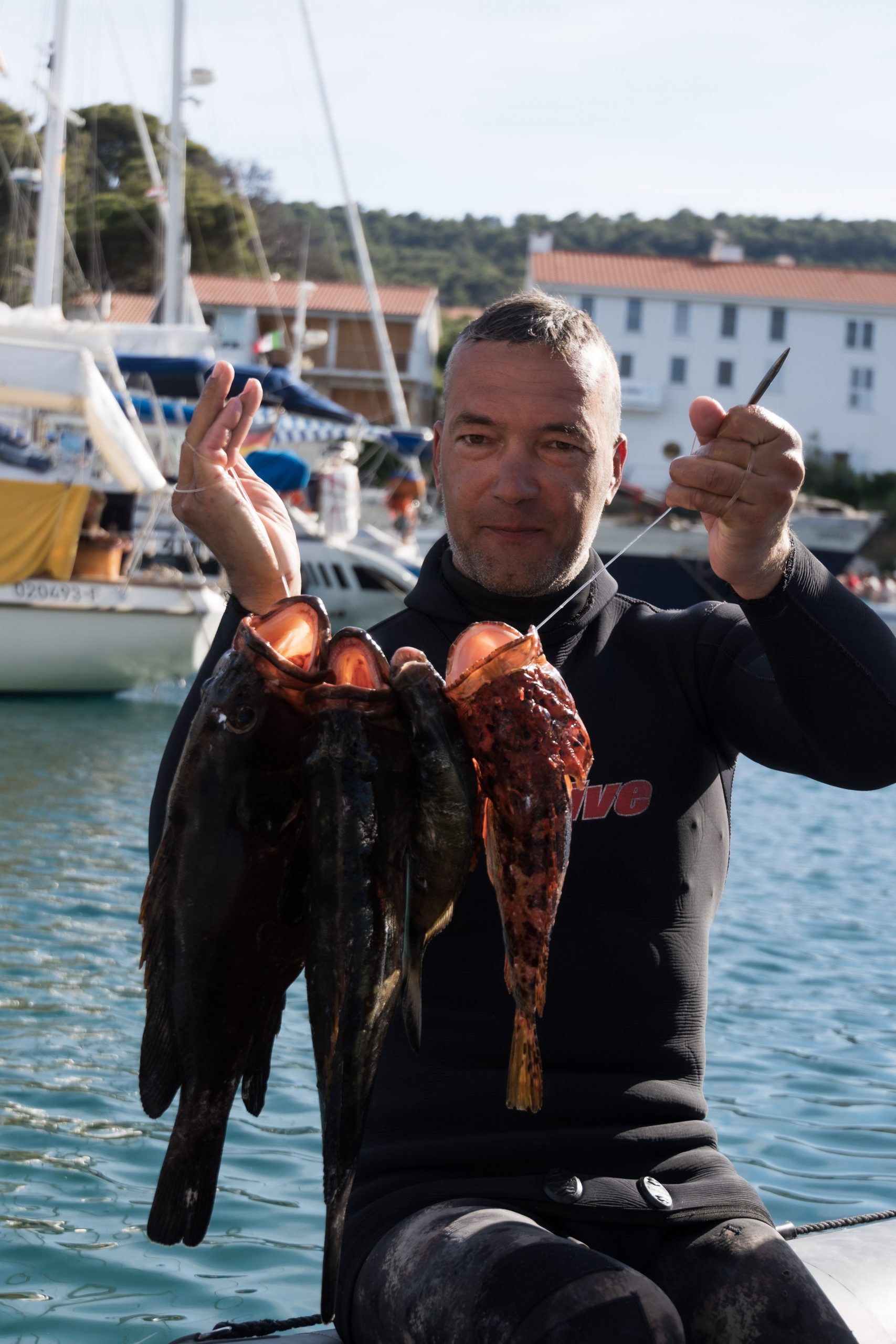
Spearfishing in Croatia. Photo by Lizzy Fowler.
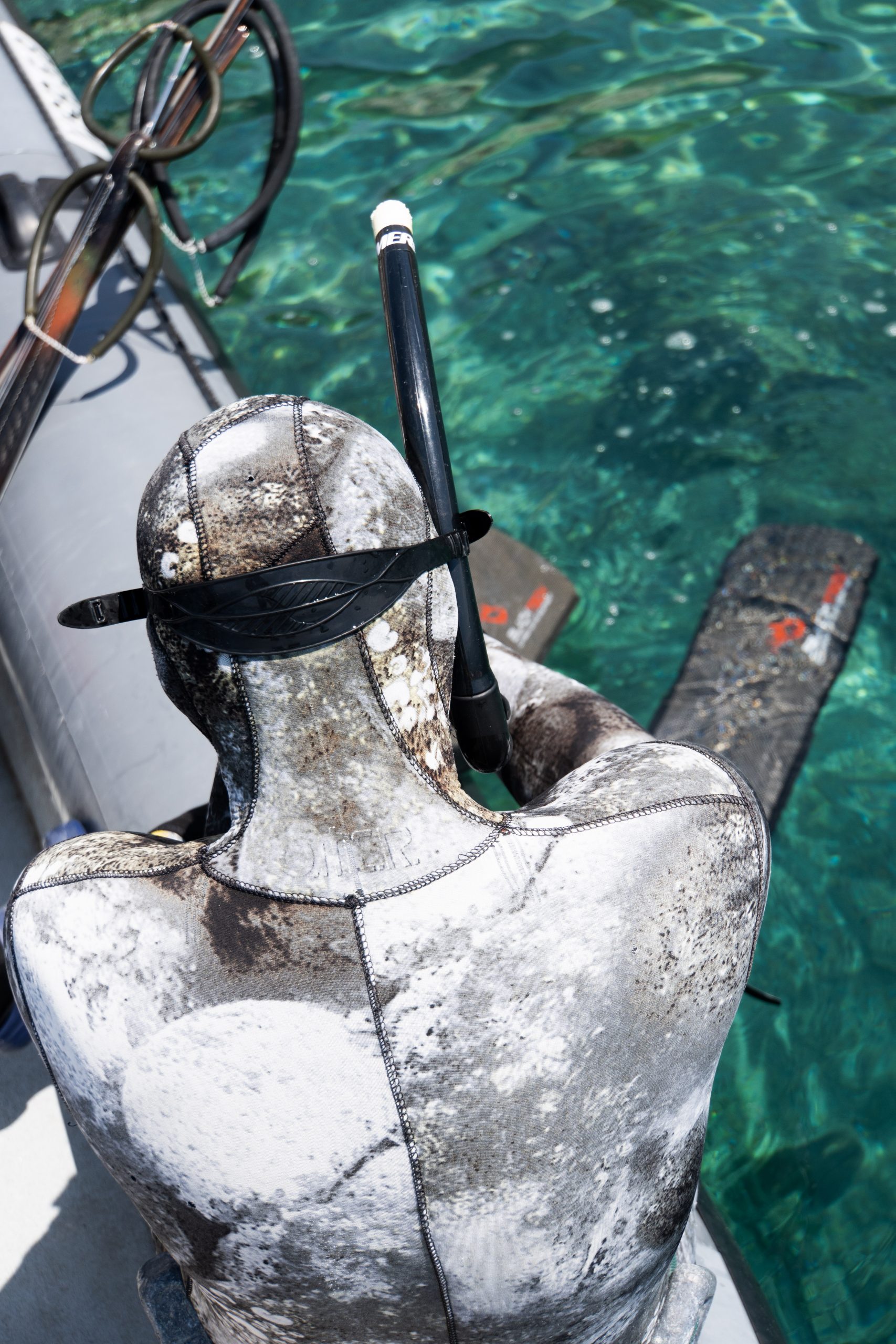
Spearfishing in Croatia. Photo by Lizzy Fowler.
What’s it like doing interviews in the field?
This research trip had a lot of moving pieces! The researchers went wherever the spearfishers went in Croatia, which meant travelling from Split to Molunat, to Zadar, and finally to Novalja. The team set up temporary labs for testing cognitive, respiratory, spleen, and circulatory functions. The final component of the daily testing was Storlund’s interview.
Up to 3 divers were tested each day before and after they went spearfishing. A day of spearfishing usually took about 6 hours.
It became clear that intuition, training, and experience factor into how long they decide to hold their breath. However, upon questioning the divers a bit more, Storlund learned that not only do divers follow signals from their body, but also that the type and number of fish around them are major factors influencing their dive behaviour.
“Talking to the spearfishers was an incredible experience,” said Storlund. According to Storlund, “One of the best parts of chatting with them was hearing their stories and the way they spoke about the fish. The participants were very willing to share and would become very animated recounting their stories.” Another bonus of studying spearfishers was being treated to freshly caught fish dinners most nights.
The research trip ended with a 2-day spearfishing competition in which several of the study participants competed. Although the research team could not watch them fish underwater, they did get to enjoy the weigh-in of fish caught at the end of each day. It was the perfect finish to a successful research trip to Croatia!
Rhea Storlund is a PhD candidate at the Marine Mammal Research Unit at the University of British Columbia


